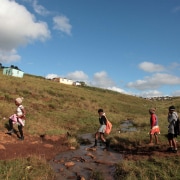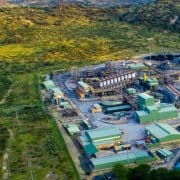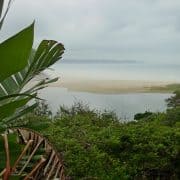|
Getting your Trinity Audio player ready...
|
South Africa is one of a number of countries where civil society is not fully able to enjoy its freedoms and rights. The 2017 CIVICUS State of Civil Society report shows that across the globe, civil society space is under unprecedented levels of threat. “Around the world, it is becoming increasingly dangerous to challenge power, and to do so risks reprisals,” the report notes.
CIVICUS is a global alliance of civil society organisations (CSOs) and activists dedicated to strengthening citizen action and civil society around the world.
Civic space is the foundation upon which an open and democratic society is built, says CIVICUS. In a free civil space, CSOs and citizens are able to claim their rights, exercise them freely, and influence the political and social structures around them. This can only happen when a state upholds its duty to protect its citizens and does not interfere with their fundamental rights to associate, assemble peacefully and freely express views and opinions. Civil society is built on these three key rights.
Most of the input for the report came from civil society, but the organisation also communicated with people working in the public and private sectors.
Only 3% of the entire global population live in areas where civil society is free to operate, while 10% live in countries with closed civic space and over 33% live in a repressed civic state. This falls in with the emerging pattern noted by the organisation, of attacks on CSOs and activists engaged in defending human rights and fundamental freedoms from repressive state machinery, extremist groups and criminal forces linked to big business.
Findings are grouped into one of five categories:
- Closed – there is complete closure – in law and in practice – of civic space. An atmosphere of fear and violence prevails, any criticism of the ruling authorities is severely punished, and there is virtually no media freedom.
- Repressed – civic space is heavily constrained. Active individuals and civil society members who criticise power holders risk surveillance, harassment, intimidation, imprisonment, injury and death.
- Obstructed – civic space is heavily contested by power holders, who impose a combination of legal and practical constraints on the full enjoyment of fundamental rights. Although civil society organisations exist, state authorities undermine them.
- Narrowed – while the state allows individuals and civil society organisations to exercise their rights to freedom of association, peaceful assembly and expression, violations of these rights also take place.
- Open – the state both enables and safeguards the enjoyment of civic space for all people. Levels of fear are low as citizens are free to form associations, demonstrate in public places and receive and impart information without restrictions in law or practice.
Just 26 countries have an open civic space, while 20 are closed, the report found. Most countries (63), including South Africa, fall into the narrowed category. There are 51 obstructed countries and 35 repressed countries as of April 2017.
Africa a space for narrowed civil freedom
The report found that civil rights are most severely oppressed in Africa and Asia, but the fact is that every global region has areas where civil society is under threat. The report notes that civil society operations in 106 countries – more than half of all UN members – have been severely constrained. This situation means that such restriction is now the norm rather than the exception and it should be viewed as a global emergency, says CIVICUS. Three of the five countries on the CIVICUS watch list are African – Angola, Kenya and Tanzania.
In South Africa, despite its long history of civic activism and its progressive Constitution, there is a gradually declining respect for civic space, particularly the rights to assemble peacefully and freely express opinions, the CIVICUS report notes. While most of South Africa’s numerous demonstrations are peaceful, police sometimes employ restrictive and violent measures to curb protests. Last week the country marked the fifth anniversary of the Marikana massacre, where on 10 August 2012 the police used lethal force to break up a group of miners who were protesting for higher pay. In the process 33 people were shot dead, in addition to the nine who had been killed in the preceding days, including two police officers.
The South African government does not lightly tolerate criticism from civil society. It periodically makes statements alleging that local civil society organisations are colluding with external powers to undermine or overthrow the government, the report notes. Corruption Watch has not been immune to this type of anti-CSO alarmist rhetoric.
For some time there has been talk of amending the NPO Act, which prompted some to raise concerns of government seeking stricter control over the NGO sector and making it more difficult to receive foreign funding and for international NGOs to operate in South Africa.
In March 2016 human rights defender Sikhosipi Bazooka Rhadebe was assassinated. The activist had made it his mission to protect the rights of the Xolobeni community, whose livelihoods are negatively affected by mining operations in the Eastern Cape province. His death remains unsolved and uncondemned, at least in official circles, despite a large-scale civil society petition.
Civil society under threat around the world
Over the past year civil society worldwide has also faced the threat of political upheavals that weakened democracy, fostered division and increased the potential for civil society to be attacked. The accompanying slew of right-wing populist leaders who either won elections or gained enough support to get their ideas into the spotlight, is an equal threat to the progressive thinking that is characteristic of the broader civil society.
Such people tend to attack CSOs when they stand for human rights, advocate for alternatives, hold governments to account, provide platforms for dissenting voices and promote progressive internationalism.
The report has also noted the emergence of media as a battleground for these political ideas. The proliferation of fake news and myths, and the trolling of progressive views has escalated in new and social media. This affects the media’s ability to offer a diversity of views and civil society’s capacity to get its points across. These new trends add to the global civic space emergency with regard to the freedom of expression.
However, citizens and CSOs are not standing idly by to watch this attack on their progressive ideas. Around the world mass protests against the clampdown on democracy have taken place. “Wherever new leaders have sought power on polarising platforms, they have faced major protests,” the report notes. “The democracy of the street is alive and well.”
In South Africa, besides the regular protests against the failure to deliver basic services, pro-democracy rallies have taken place around the country in recent months, calling for government to be held accountable for corruption, protesting against proposed social media regulation, and
Such events act as essential safety valves for democracy, a means to communicate important grievances, and schools of participation to bring people into the fold of civil society action.
However, it is not enough for the state to merely guarantee the rights to expression, association and freedom to assemble, says CIVICUS. It must actively take steps to protect people who choose to exercise their democratic rights by associating, peacefully assembling and expressing themselves. When the state actively protects these essential rights, CSOs can pursue peaceful causes and express themselves without fear of retribution, while demonstrators are protected during public gatherings. If these rights are violated, the state should also conduct a thorough police investigation and follow the required processes to ensure that justice is served.
Private sector an important player
The report also stresses the importance of CSOs working co-operatively with the private sector, as business is an area that affects the political, social, cultural and economic sectors of society, and it has become a matter of urgency to pay attention to the private sector and find new ways of engaging with it.
The rapid international expansion of many private sector companies is a concern as they are often guilty of serious human rights infringements, whether directly, by causing environmental damage, displacing citizens or denying labour rights, or indirectly, for example, by fuelling corruption or avoiding paying taxes. Civil society has particular concerns with extractive industries that wreak havoc on the environment, businesses that grab land from local populations, and large-scale infrastructure development projects that impact on communities.
Some businesses target civil society activists who seek to hold them to account or prevent abuse. Others actively drive restrictions on civil society space through their influence with governments. Impunity for attacks, particularly on environmental, land and indigenous peoples’ rights defenders and independent journalists, is a persistent problem.


 Bonile Bam/New Frame
Bonile Bam/New Frame 




